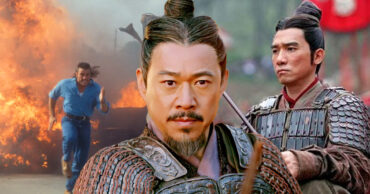
Did you know that a Star Wars Jedi was not allowed to either grieve over their dead compatriots? In the movies, we get caught up in the action and are likely to miss this simple truth, but it seems like this is rather harsh given the normal grieving process for humans. It would seem that there would be a lot of unresolved deaths in the Jedi world. But who ever said they were actually human instead of just looking human?
Here are 10 more rules about Jedi that the Star Wars franchise has foisted upon our heroes.
1. They are not allowed to have romantic relationships or get involved with romantic love
If we knew this at the beginning, we would have quickly realized that Princess Leia and Luke Skywalker never had a chance, and their attraction was something else. This also means Han Solo always had a clear shot at the Princess, despite her constant rebuffing of his advances (at least for a couple of movies).
2. They can never initiate an attack
In the major American sports, it is said that defense wins championships. Apparently the Jedi took a page from that playbook because Jedi must concentrate on defense. Remember when Obe Wan first was teaching young Luke with that orbiting space ball that sent electronic shocks at him? Why not just slice and dice the electronic nuisance? Dee-fense, first and foremost.
3. They must banish their emotions
This doesn’t mean they don’t feel anything, but that in 99.9% of their actions their lives must reflect the Jedi code rule #1 of “Emotion, yet peace.” Given that the best warriors fuel their attacks controlled but directed emotions, it seems contradictory to the nature of a true warrior. I mean, aren’t a lot of serial killers very cold and calculating? Now the rule seems kind of creepy.
4. They must be completely objective
OK, while this logically follows from #3, it also seems like it is an idea stolen from the Star Trek character of Spock. In fact, a Jedi might he the physical human side of Spock with a light saber.
5. Getting involved in a war or dispute is a last resort
We saw in the Phantom Menace that a Jedi said, “I can only protect you. I cannot fight a war for you.” This is consistent with the whole “defense over offense” rule, but uncomfortably similar to the Star Trek franchise rule of non-interference in contact with other life forms. But the idea of no offense connects with the idea of war as a last resort since most wars begin with an offensive plan.
6. Rank is not earned by valor
It is the Council who has the last say on whether one becomes a Jedi. This seems rather subjective and almost arbitrary, contradicting several other Jedi rules of the code. But who’s counting?
7. One Padawan per master
This one makes a lot of sense since it is best to focus on the training of one Jedi at a time. No scheduling hassles, and it makes for an easier life for the master. Psychologically, trying to dissect someone’s personality can take years, and so who has the time to do it with several people at the same time?
8. No dwelling on the past
The first thing that came to mind after seeing this one was, “don’t we learn from the past?” While this is true, there is a difference between learning and dwelling. You learn a lesson from the past, correct the mistake, and move on. Anyone who has dwelt on a former move knows the dangers of this.
9. The present is the focus
Given what was just said about #8, this is a logical follow up. Even the future is not the focus since no one can know the outcome of a specific event in the present. They are Jedi, not psychics. There is a different show for that.
10. Recognize the existence of the Dark Side without dwelling on it
If this sounds similar to #8, it is because the power of the Dark Side often comes with harboring anger and bitterness of past events. As much as we would like to change many events of our past, we have to accept them and move on.
 Follow Us
Follow Us




